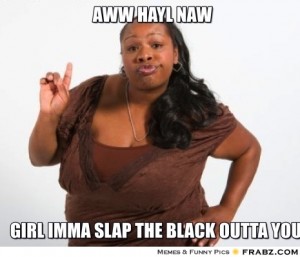When I came to Canada for University, I became color conscious, not only because I am clearly a minority but because my identity as a Sierra Leonean who lived in Nigeria had been replaced by my blackness. My Nigerian personality, my humor, accent, and all the things about me that are not necessarily influenced by my African culture were dismissed through black popular culture.
Stuart Hall speaks on Race and Identity in terms of Black popular culture in his article “What is this Black in Black in Popular Culture”. He talks about the essentialist view that our racial differences are natural and how we perform the scripts written for us by black popular culture, which is placed by the white hegemony. America as a main global power has influence on the rest of the world and in this case, in terms of black popular culture.
In my home country there is a way in which we perform our culture and anything outside it, is seen as defiant but I feel even back at home my identity was less limited because in North America I am black. I am expected to act a certain way in which I am not accustomed to. The way black women are depicted in black popular culture is a disadvantage to all black women. Although I am a boisterous, strong, no nonsense person, it really has nothing to do with the color of my skin but greatly influenced by my culture and my life experiences.
I find that people in Vancouver use the word “sassy” to describe me even when I don’t do something necessarily “sassy”. I wonder if it has to do with the color of my skin and I wonder if I was white and had the same personality, I would be described as “sassy”. Being black in Canada always has me in the state of wonder, wondering if that person said that because of my skin, wondering why when I do something silly, it is considered “ghetto”, wondering why when I defend myself, people say don’t mess with the black girl. It is a lot of pressure to act black when there is so much to my identity that is not necessarily black.
 I admit that I do perform according to my culture and black popular culture but apart from those things I am me. I swim, I love to paint, I listen to rock and occasionally country music. I am boisterous but I am also empathetic, scared, sensitive and many other things that make up my identity. As Indie Arie sings “I am not my hair, I am not this skin, I am not your expectations…I am a soul that lives within”.
I admit that I do perform according to my culture and black popular culture but apart from those things I am me. I swim, I love to paint, I listen to rock and occasionally country music. I am boisterous but I am also empathetic, scared, sensitive and many other things that make up my identity. As Indie Arie sings “I am not my hair, I am not this skin, I am not your expectations…I am a soul that lives within”.
References:
Hall, Stuart. “What is this Black in Black in Popular Culture”. Black Popular Culture. ED. Gina Dent. Seattle WA Bay Press, 1992
“”I Am Not My Hair” Lyrics.” INDIA.ARIE LYRICS. N.p., n.d. Web. 07 Nov. 2015.